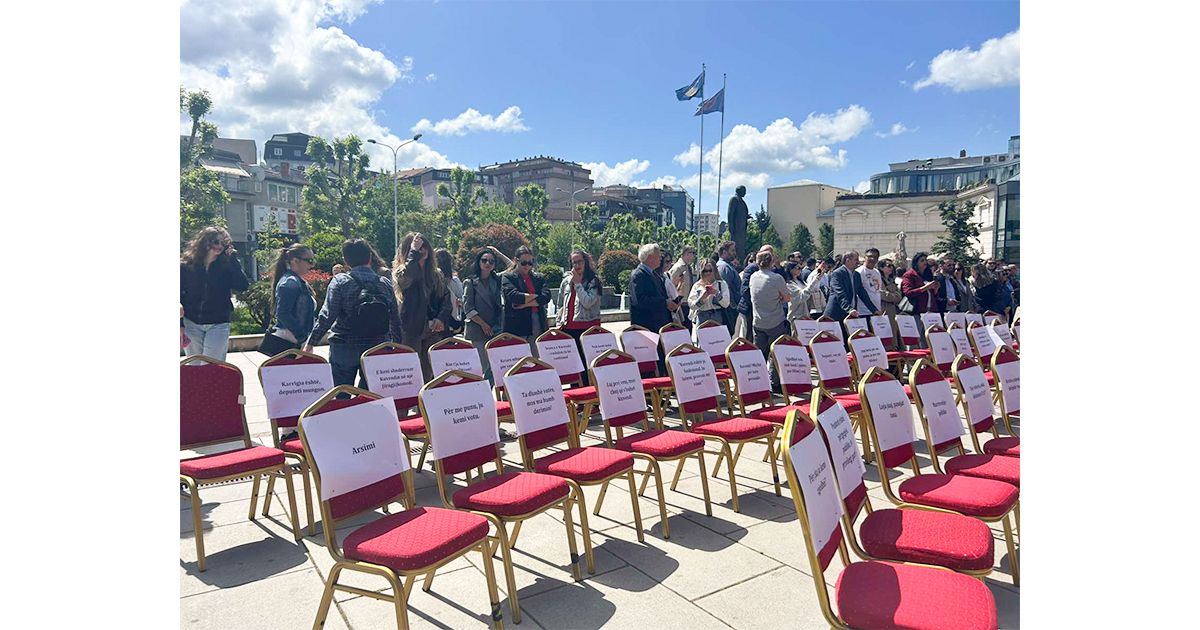Increasing Access to Justice
Through an initiative by the Norma organization of legal professionals aimed at improving access to justice, awareness and legal education have been raised regarding inheritance and property rights, as well as the provision of free legal assistance.
Beneficiaries include marginalized groups such as persons with disabilities, represented by the NGO Handikos, LGBTQI+ individuals (Lesbian, Gay, Bisexual, Transgender, Queer, Intersex, and other identities), represented by the Center for Social Group Development – CSGD, minority communities, and the organization of pensioners and labor invalids. Through this grant, lectures and informative meetings have been made available to women, men, boys, and girls from these communities to inform them about their legal rights and the options for free legal aid.
“Free legal assistance has always been the primary goal of our projects, addressing ongoing issues in Kosovo, as well as responding to requests we’ve received in previous meetings, particularly concerning the economic position of women,” states Valbona Salihu, the executive director of the Norma organization.
So far, several significant results have been achieved, positively impacting beneficiaries. These achievements include increased access to justice, enhanced awareness of inheritance and property rights, and empowerment of marginalized groups.
During lectures held by Norma, participants received direct legal advice, helping resolve their specific issues and providing clarity on the legal procedures they should follow to protect their rights.
Awareness on Inheritance and Property Rights: One of the key achievements of the initiative has been raising awareness about inheritance and property rights under Kosovo’s Civil Code, particularly for women and other marginalized groups. This has led to an increase in citizens’ awareness, especially among women, about their ownership rights.
Vlora Azemi, a lawyer at Norma, explains their motivation behind this initiative. “The reason we undertook this project, especially the part on inheritance, is due to women waiving their inheritance rights,” she says.
Proper information about property and inheritance rights has emerged as one of the most significant requests from participating women, according to Vlora. “Women go and sign away their inheritance rights, not knowing what they are entitled to or understanding they have a right to inherit just like men. They often think they aren’t entitled to that share or are afraid of losing family ties if they claim it.”
According to her, many of these women have shared that they were unaware of their right to property or the paths they could pursue to acquire it.
“It is a very small number of women who inherit. From data collected in Pristina last year, we found that only 20% of women inherit and own property compared to men.”
Through Norma’s activities, around 60 people, including women, men, girls, and boys, have been informed about their legal rights and the possibilities for accessing free legal aid.
“With the new Civil Code, if it is approved, these issues, particularly the waiver of inheritance, have been well addressed. During the session when signing, the notary is required to keep a record and record the session, and during the session, they must inform each person of their rights,” says Vlora Azemi from Norma.
Some findings from the activities conducted by Norma: There is a need for better inclusion of people with disabilities in the Free Legal Aid Law.
During monitoring, positive feedback was collected from participants. One participant at the roundtable stated, “This project has helped me better understand my rights as a woman in Kosovo. I now feel more confident in claiming what is rightfully mine under the law.”
An important recommendation is to establish shelters for men and boys and to address family cases comprehensively in situations of domestic violence. Additionally, it is recommended to involve more local organizations focused on defending the rights of men and boys.
At the end of the activity, a brochure was prepared containing detailed information on the provision of free legal aid, which was distributed by Norma across social media networks.
From Norma’s previous initiative (2021-2022), an analysis of the status of property inheritance by women was conducted. To raise women’s awareness of their property rights, Norma organized a workshop on May 26, 2022, in Pristina, in collaboration with “NGO Dora e Hapur,” led by Mr. Dardan Makolli.
During this meeting, women discussed their property rights, revealing that none of them had registered property in their name and that most properties belonged to grandparents or family members. This situation highlights a significant challenge for women in Kosovo, where lack of ownership negatively impacts their economic and social empowerment.
Recommendations gathered by Norma during its activities include opening shelters for men in Gračanica. One key recommendation from Handikos is that, due to the location of the Free Legal Aid Agency’s office, people with disabilities face access difficulties, so they have requested easier access for everyone to the Agency’s office.
In all meetings, Norma offers free legal advice, allowing participants to consult for free legal aid.
This initiative is supported by the Kosovo Women’s Fund with a grant of €14,997.44, financed by the Sigrid Rausing Trust.



